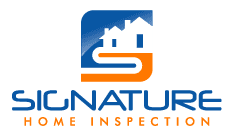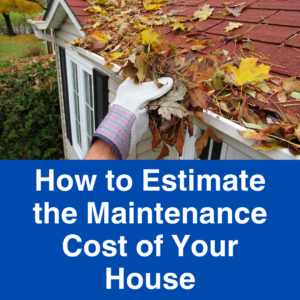If you’re an Orange County homeowner, you may be surprised to learn that your home insurance renewal could require a home insurance inspection. These inspections are becoming more common as insurance companies aim to assess the condition of your property and evaluate potential risks. At Signature Home Inspection, we understand that the process can feel overwhelming, so we’re here to guide you. In this blog post, we’ll explain what to expect during a home insurance inspection in Orange County and how you can prepare.

Home Insurance Inspections in Orange County: What to Expect
What Is a Home Insurance Inspection?
A home insurance inspection is a limited evaluation of your property conducted by or on behalf of your insurance company. Unlike a complete home inspection, which is comprehensive and often required during a real estate transaction, a home insurance inspection focuses on identifying visible issues that could pose a risk to the insurer. The goal is to ensure your home meets basic standards and doesn’t present an increased likelihood of claims.
These inspections are particularly relevant for Orange County homeowners due to the region’s unique risks, such as wildfires, earthquakes, and coastal weather conditions. By understanding what to expect, you can approach the process with confidence.
What Does a Home Insurance Inspection Cover?
A home insurance inspection in Orange County typically focuses on a few key areas of your property. While the scope may vary depending on your insurance provider, here are the most common elements inspectors will evaluate:
- Roof and Exterior: Inspectors will check for visible damage, such as missing shingles, cracks, or wear and tear, that could lead to leaks or other issues.
- Electrical Systems: They may look for outdated wiring, exposed wires, or other obvious electrical hazards.
- Plumbing: Inspectors will check for leaks, water damage, or signs of plumbing issues that could cause problems.
- HVAC Systems: They may verify that your heating and cooling systems are functioning correctly and are well-maintained.
It’s important to note that home insurance inspections do not include structural evaluations, safety assessments, or general maintenance checks. If you have concerns about these areas, you may want to consider scheduling a separate, more comprehensive inspection.
Why Do Insurance Companies Require Inspections?
Insurance companies use home insurance inspections to assess the risk of insuring your property. By identifying potential hazards or areas of concern, they can determine whether your home meets their underwriting standards. In some cases, the inspection results may impact your premiums or even your eligibility for coverage.
These inspections are crucial for Orange County homeowners due to the region’s higher risk of natural disasters. Ensuring your home is in good condition can reduce the likelihood of claims and potentially lower your insurance costs.
How to Prepare for a Home Insurance Inspection
Preparing for a home insurance inspection can help the process go smoothly and ensure your home meets the requirements. Here are some steps Orange County homeowners can take:
- Address Visible Issues: Fix minor problems like leaky faucets, electrical defects, or damaged roofing before the inspection.
- Clean and Declutter: A clean home makes it easier for inspectors to access key areas like the attic, basement, and electrical panels.
- Gather Documentation: Have recent repairs or maintenance records ready to show the inspector.
What Happens After the Inspection?
Once the inspection is complete, the inspector will provide a report to your insurance company. If any issues are identified, you may need to repair them before your insurance provider approves your renewal. The insurance company may sometimes adjust your premiums based on the inspection results.
For Orange County homeowners, staying proactive is key. Addressing potential problems early can help avoid higher insurance costs or policy cancellation.
Why Choose Signature Home Inspection?
At Signature Home Inspection, we understand the importance of a reliable and efficient inspection process. While home insurance inspections are limited in scope, our team is here to help you prepare and address any concerns. With years of experience serving Orange County, we know the unique challenges homeowners face in this region and are here to help you every step of the way.
If your home insurance renewal requires an inspection, don’t wait until the last minute. Contact Signature Home Inspection today to learn how we can assist you in preparing for the process. Call us at (949) 899-6634 or visit our website to book an appointment. Let us help you protect your home and your peace of mind!

